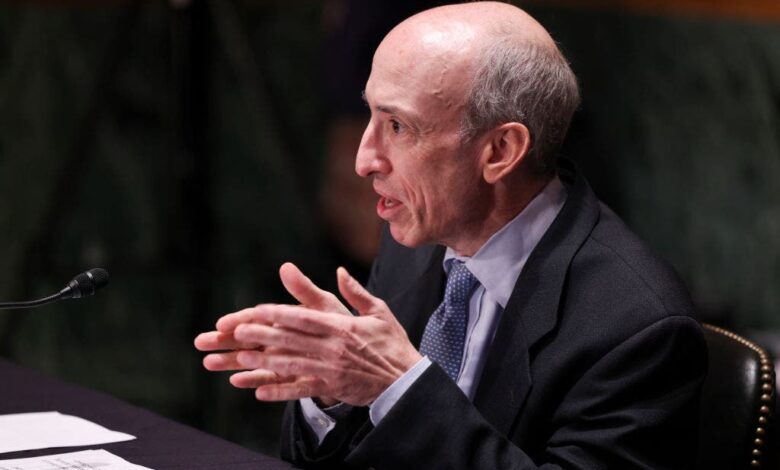Gensler: Ether staking could break securities laws.

Ethereum’s change to proof-of-stake (PoS) may have put the cryptocurrency back in the sights of the Securities and Exchange Commission (SEC).
The Wall Street Journal says that SEC chairman Gary Gensler told reporters after the Senate Banking Committee on Thursday that cryptocurrencies and intermediaries that let holders “stake” their crypto may make it a security under the Howey test.
Gensler was quoted in the WSJ as saying, “From the coin’s point of view, […] that’s another sign that under the Howey test, the investing public is expecting profits based on the work of others.”
Related: How to Explain Why the U.S. The SEC wants to change the way the Treasury market works.
The comments were made on the same day that Ethereum switched to proof-of-stake (PoS). This means that the network will no longer use energy-intensive Proof-of-Work (PoW) mining. Instead, validators will use staking to verify transactions and create new blocks.
Gensler said that letting coin holders stake their coins makes “the investing public expect profits based on the work of others.”
Gensler went on to say that intermediaries that offer staking services to their clients “look a lot like lending, but with different labels.”
The Commodity Futures Trading Commission (CFTC) and the Securities and Exchange Commission (SEC) both agreed that Ether (ETH) was more like a commodity than a security.
The SEC has been keeping a close eye on crypto, especially those it says are securities. The government agency is involved in a case against Ripple Labs over the launch of the XRP token.
The SEC has also tried to get companies that offer crypto lending products to register with them. In February, BlockFi had to pay a $100 million fine because it didn’t register high-yield interest accounts, which the SEC considers to be securities and which were not registered.
Gabor Gurbacs, the director of digital assets strategy at the American investment firm VanEck, tweeted to his 49,300 followers that he had been saying for over six years “that POW to POS transitions can draw regulatory attention.”
To be clear, I’m not saying that ETH is necessarily a security because of its proof model, but regulators do talk about staking in the context of dividends, which is one part of what securities laws call a “common enterprise.” The Howey Test also looks at other things.
— Gabor Gurbacs (@gaborgurbacs) September 15, 2022 Gurbacs went on to explain that regulators call rewards from betting “dividends,” which is a part of the Howey test.
Related: Since 2017, the SEC has been hit with over 200 lawsuits against crypto assets.
Developers of cryptocurrency should work with the SEC to find a middle ground.
The Howey Test comes from a Supreme Court case from 1946. In that case, the court decided what makes a deal an investment contract. If it does, it would be a security, and the Securities Act of 1933 would cover it.





